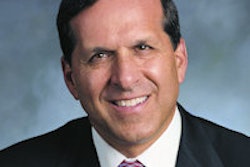
Choosing the right associate could be one of the biggest decisions you will make as a practice owner. But how should you assess an associate candidate? While many practice owners opt for the "gut feel" method, results are generally better when taking a more systematic approach. Several compatibility categories need to be considered when assessing the best candidate for your practice.
Clinical skills
 Morgan Pace is the vice president of ETS Dental.
Morgan Pace is the vice president of ETS Dental.This is fairly straightforward. If your plan is for the incoming associate to keep more procedures in-house, you need to know if the candidate can handle the cases you are currently referring out. Is the associate experienced with molar root canals? Could she take out erupted third molars? Can he place implants using your current system? What would he or she consider when determining if a case is within their comfort zone? How much time would the associate want scheduled for those procedures?
If you are unsure of your potential associate's skill level, the following can help you gain additional insight:
- Ask for pictures or case studies of their work (adhering to HIPAA guidelines).
- Ask the candidate to demonstrate a procedure on a pulled tooth.
- Ask to speak to a reference who can attest to the quality of the candidate's work. A local specialist with whom the associate has a referral relationship can often offer a good opinion.
Production capability
Having a clear goal for the associate's production once hired will help guide you during the candidate assessment process. Has the associate maintained similar clinical production numbers in past practices? A fair comparison might be complicated. It is important to consider the difference in procedural mix, insurance reimbursements, and general fee levels between practices.
Should you need reassurance you can do the following:
Ask to see a production report if the associate is able to provide one.
Ask the candidate for a copy or example of a past week's schedule so you can see how much time is allotted for certain procedures. A printout many not be possible depending on the current contract terms, but in some cases it can be provided with practice and patient information redacted.
If the associate worked on commission, ask to see a year-end pay stub and use the percentage to calculate yearly production.
Goal alignment
Is it your intention to hire an associate as an heir apparent for the eventual sale of your practice? Are you interested in increasing your capacity or adding locations? If you hire an associate whose career plan does not align, you can expect turnover within a few years.
Often, an associate's motivation for leaving a current employer can tell you much about the person's goals. In some cases, the reasons may not be relevant. More often, associates leave because they do not feel challenged or do not feel that they have room to grow clinically or financially. In some cases, associates will leave lucrative jobs to seek a position leading to equity. If your position does not represent an improved situation, you cannot count on a lasting relationship.
Clinical philosophy match
While allowances should be made for different opinions, patients and staff will have greater trust for an associate whose recommendations reinforce what they have heard in the past. If the associate is more aggressive, your patients will feel like they are being pressured to approve unnecessary dentistry. Conversely, if the associate is more conservative, you will look like the pushy one. Seeing an overly conservative associate miss opportunities for production can be frustrating for a practice owner.
If you are unsure of your compatibility, you might consider the following:
Review cases together. Many websites offer good case examples to use. Ask the associate to recommend a treatment plan based on set criteria.
Ask for production reports. What percentage of cases are crowns instead of fillings? This could demonstrate a difference in treatment approach. Keep in mind that different practices treat different patient populations with different insurance plans and with varying degrees of dentist treatment planning autonomy.
Review the continuing education courses completed by your potential associate. Also consider the candidate's clinical development goals. Are the associate's interests compatible with or complementary to your own?
Personality match
The ideal associate will be compatible with you and your staff. By the time you make an offer, you will likely have spent enough time around the associate that you will know if you can enjoy your time together in the office. This is not always the case with staff.
The best way to determine staff-associate compatibility is to encourage interaction during the interview process. Do not overlook the warning signs if these interactions do not go well. It is very hard to fix a toxic work environment once it develops. While an associate may be more valuable to the practice, if the person drives staff away, the long-term effects of that turnover can be extremely costly.
Morgan Pace is the vice president of ETS Dental, a dental recruiting firm that specializes in finding and placing dentists, dental specialists, and practice leadership professionals with independent practices. Visit www.etsdental.com, or contact Morgan directly at 540-491-9102 or [email protected].
The comments and observations expressed herein do not necessarily reflect the opinions of DrBicuspid.com, nor should they be construed as an endorsement or admonishment of any particular idea, vendor, or organization.



















